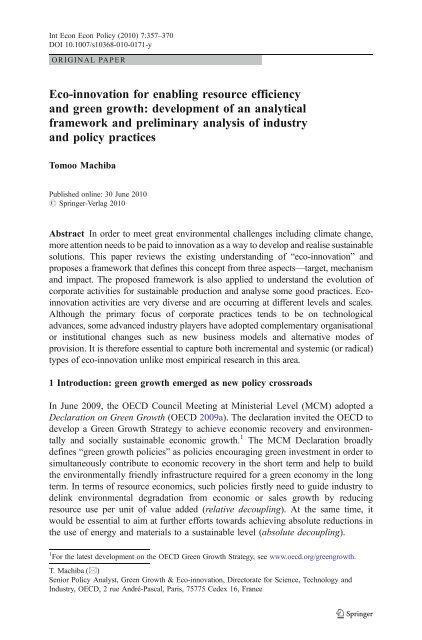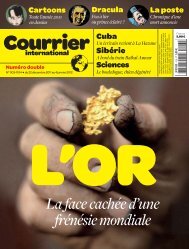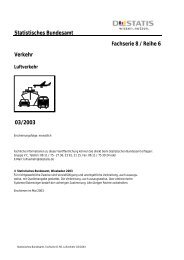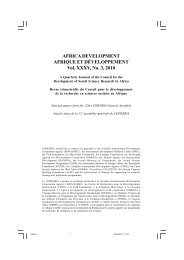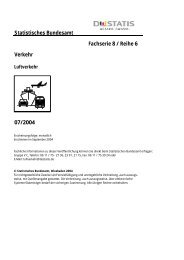The international economics of resources and resource ... - Index of
The international economics of resources and resource ... - Index of
The international economics of resources and resource ... - Index of
Create successful ePaper yourself
Turn your PDF publications into a flip-book with our unique Google optimized e-Paper software.
Int Econ Econ Policy (2010) 7:357–370<br />
DOI 10.1007/s10368-010-0171-y<br />
ORIGINAL PAPER<br />
Eco-innovation for enabling <strong>resource</strong> efficiency<br />
<strong>and</strong> green growth: development <strong>of</strong> an analytical<br />
framework <strong>and</strong> preliminary analysis <strong>of</strong> industry<br />
<strong>and</strong> policy practices<br />
Tomoo Machiba<br />
Published online: 30 June 2010<br />
# Springer-Verlag 2010<br />
Abstract In order to meet great environmental challenges including climate change,<br />
more attention needs to be paid to innovation as a way to develop <strong>and</strong> realise sustainable<br />
solutions. This paper reviews the existing underst<strong>and</strong>ing <strong>of</strong> “eco-innovation” <strong>and</strong><br />
proposes a framework that defines this concept from three aspects—target, mechanism<br />
<strong>and</strong> impact. <strong>The</strong> proposed framework is also applied to underst<strong>and</strong> the evolution <strong>of</strong><br />
corporate activities for sustainable production <strong>and</strong> analyse some good practices. Ecoinnovation<br />
activities are very diverse <strong>and</strong> are occurring at different levels <strong>and</strong> scales.<br />
Although the primary focus <strong>of</strong> corporate practices tends to be on technological<br />
advances, some advanced industry players have adopted complementary organisational<br />
or institutional changes such as new business models <strong>and</strong> alternative modes <strong>of</strong><br />
provision. It is therefore essential to capture both incremental <strong>and</strong> systemic (or radical)<br />
types <strong>of</strong> eco-innovation unlike most empirical research in this area.<br />
1 Introduction: green growth emerged as new policy crossroads<br />
In June 2009, the OECD Council Meeting at Ministerial Level (MCM) adopted a<br />
Declaration on Green Growth (OECD 2009a). <strong>The</strong> declaration invited the OECD to<br />
develop a Green Growth Strategy to achieve economic recovery <strong>and</strong> environmentally<br />
<strong>and</strong> socially sustainable economic growth. 1 <strong>The</strong> MCM Declaration broadly<br />
defines “green growth policies” as policies encouraging green investment in order to<br />
simultaneously contribute to economic recovery in the short term <strong>and</strong> help to build<br />
the environmentally friendly infrastructure required for a green economy in the long<br />
term. In terms <strong>of</strong> <strong>resource</strong> <strong>economics</strong>, such policies firstly need to guide industry to<br />
delink environmental degradation from economic or sales growth by reducing<br />
<strong>resource</strong> use per unit <strong>of</strong> value added (relative decoupling). At the same time, it<br />
would be essential to aim at further efforts towards achieving absolute reductions in<br />
the use <strong>of</strong> energy <strong>and</strong> materials to a sustainable level (absolute decoupling).<br />
1 For the latest development on the OECD Green Growth Strategy, see www.oecd.org/greengrowth.<br />
T. Machiba (*)<br />
Senior Policy Analyst, Green Growth & Eco-innovation, Directorate for Science, Technology <strong>and</strong><br />
Industry, OECD, 2 rue André-Pascal, Paris, 75775 Cedex 16, France


